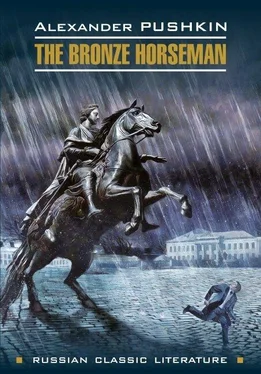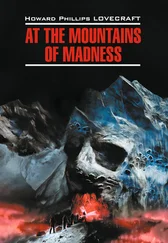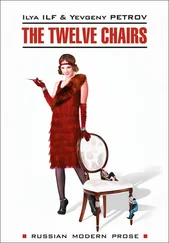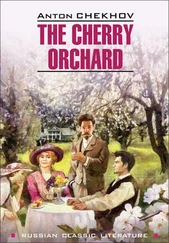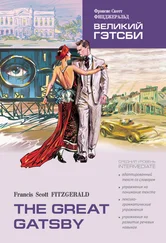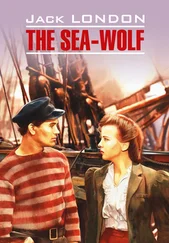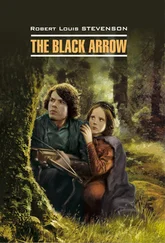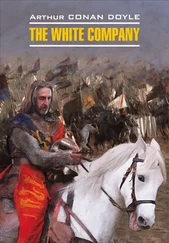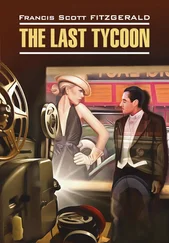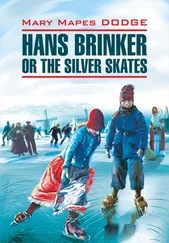hurrying, through the byways!
From city’s end to end they sped
Through storm and peril, bent on saving
The people, now in panic raving
And drowning in their houses there.
New-built, high up in Peter’s Square
A corner mansion then ascended;
And where its lofty perron ended
Two sentry lions stood at guard
Like living things, and kept their ward
With paw uplifted. Here, bare-headed,
Pale, rigid, arms across his breast,
Upon the creature’s marble crest
Sat poor Evgeny. But he dreaded
Nought for himself; he did not hear
The hungry rollers rising near
And on his very footsoles plashing,
Feel on his face the rainstorm lashing,
Or how the riotous, moaning blast
Had snatched his hat. His eyes were fast
Fixt on one spot in desperation
Where from the deeps in agitation
The wicked waves like mountains rose,
Where the storm howled, and round were driven
Fragments of wreck… There,
God in Heaven!
Hard by the bay should stand,
and close,
Alas, too close to the wild water,
A painless fence, a willow-tree,
And there a frail old house should be
Where dwelt a widow, with a daughter
Parasha – and his dream was she!
His dream – or was it but a vision,
All that he saw? Was life also
An idle dream which in derision
Fate sends to mock us here below?
And he, as though a man enchanted
And on the marble pinned and planted
Cannot descend, and round him lie
Only the waters. There, on high,
With Neva still beneath him churning,
Unshaken, on Evgeny turning
His back, and with an arm flung wide,
Behold the Image sit, and ride
Upon his brazen horse astride!
But now, with rack and ruin sated
And weary of her insolence
And uproar, Neva, still elated
With her rebellious turbulence,
Stole back, and left her booty stranded
And unregarded. So a bandit
Bursts with his horde upon a village
To smash an slay, destroy and pillage;
Whence yells, and violence, and alarms,
Gritting of teeth, and grievous harms
And wailing’s; then the evildoers
Rush home; but dreading the pursuers
And sagging with the stolen load
They drop their plunder on the road.
Meanwhile the water had abated
And pavements now uncovered lay;
And our Evgeny, by dismay
And hope and longing agitated,
Sore-hearted to the river sped.
But still it lay disquieted
And still the wicked waves were seething
In pride of victory, as though
A flame was smoldering below;
And heavily was Neva breathing
Like to a horse besprent with foam
Who gallops from the battle home.
Evgeny watches, and descrying
By happy chance a boat, goes bluing
To hail the ferryman; and he,
Unhired and idle, willingly
Convoys him for a threepence, plying
Through that intimidating sea.
The old tried oarsman long contended
With the wild waters, hour by hour,
Sunk in the trough, the skiff descended
Mid rollers, ready to devour
Rash crew and all – at last contriving
To make the farther shore.
Arriving,
Evgeny – evil is his lot! —
Runs to the old street, – and knows it not.
All, to his horror, is demolished,
Leveled or ruined or abolished.
Houses are twisted all awry,
And some are altogether shattered,
Some shifted by the seas; and scattered
Are bodies, flung as bodies lie
On battlefields. Unthinkingly,
Half-fainting, and excruciated,
Evgeny rushes on, awaited
By destiny with unrevealed
Tidings, as in a letter sealed.
He scours the suburb; and discerning
The bay, he knows the house is near;
And then stops short, ah, what is here?
Retreating, and again returning,
He looks – advances – look again.
‘Tis there they dwelt, the marks are plain;
There is the willow. Surely yonder
The gate was standing, in the past;
Now, washt away! No house! – O’ercast
With care, behold Evgeny wander
Forever rounds and rounds the place,
And talk aloud, and strike his face
With his bare hand. A moment after,
He breaks into a roar of laughter.
The vapors of the night came down
Upon the terror-stricken town,
But all the people long debated
The doings of the day, and waited
And could not sleep. The morning light
From pale and weary clouds gleamed bright
On the still capital; no traces
Now of the woes of yesternight!
With royal purple it effaces
The mischief; all things are proceeding
In form and order as of old;
The people are already treading,
Impassive, in their fashion, cold,
Through the cleared thoroughfares, inheeding;
And now official folk forsake
Their last night’s refuge, as they make
Their way to duty. Greatly daring,
The huckster now takes heart, unbarring
His cellar, late the prey and sack
Of Neva, – hoping to get back
His heavy loss and wasted labor
Out of the pockets of his neighbor.
The drifted boats from each courtyard
Are carried.
To a certain bard,
A count, a favorite of heaven
To one Khvostov, the theme was given
To chant in his immortal song
How Neva’s shores had suffered wrong.
But my Evgeny, poor, sick fellow! —
Alas, the tumult in his brain
Had left him powerless to sustain
Those shocks of terror. For the bellow
Of riotous winds and Neva near
Resounded always in his ear;
A host of hideous thoughts attacked him,
A kind of nightmare rent and racked him,
And on he wandered silently;
And as the week, the month, went by,
Never came home. His habitation,
As time ran out, the landlord took,
And leased the now deserted nook
For a poor poet’s occupation.
Nor ever came Evgeny home
For his belongings; he would roam,
A stranger to the world; his ration
A morsel tendered in compassion
Out of a window; he would tramp
All day, and on the quay would camp
To sleep; his garments, old and fraying,
Were all in tatters and decaying.
And the malicious boys would pelt
The man with stones; and of the felt
The cabman’s whiplash on him flicking;
For he had lost the skill of picking
His footsteps, – deafened, it may be,
By fears that clamored inwardly.
So, dragging out his days, ill-fated,
He seemed like something mistreated,
No beast, nor yet of human birth,
Neither a denizen of earth
Nor phantom of the dead.
Belated
One night, on Neva wharf he slept.
Now summer days toward autumn crept;
A wet and stormy wind was blowing,
And Neva’s sullen waters flowing
Plashed on the wharf and muttered there
Complaining – beat the slippery stair
As suitors beat in supplication
Unheeded at a judge’s door.
In gloom and rain, amid the roar
Of winds, – a sound of desolation
With cries of watchmen interchanged
Afar, who through the darkness ranged, —
Our poor Evgeny woke; and dounted,
By well-remembered terrors haunted,
He started sharply, rose in haste,
And forth upon his wanderings paced;
– And halted on a sudden, staring
About him silently, and wearing
A look of wild alarm and awe.
Where had he come? For now he saw
The pillars of that lofty dwelling
Where, on the perron sentinelling,
Two lion-figures stand at guard
Like living things, keep watch and ward
With lifted paw. Upright and glooming,
Above the stony barrier looming,
The Image, with arm flung wide,
Sat on his brazen horse astride. [3] See the description of the monument in Mickiewicz. It is borrowed from Ruban, as Mickiewicz himself observes ( Pushkin’s note ).
Читать дальше
